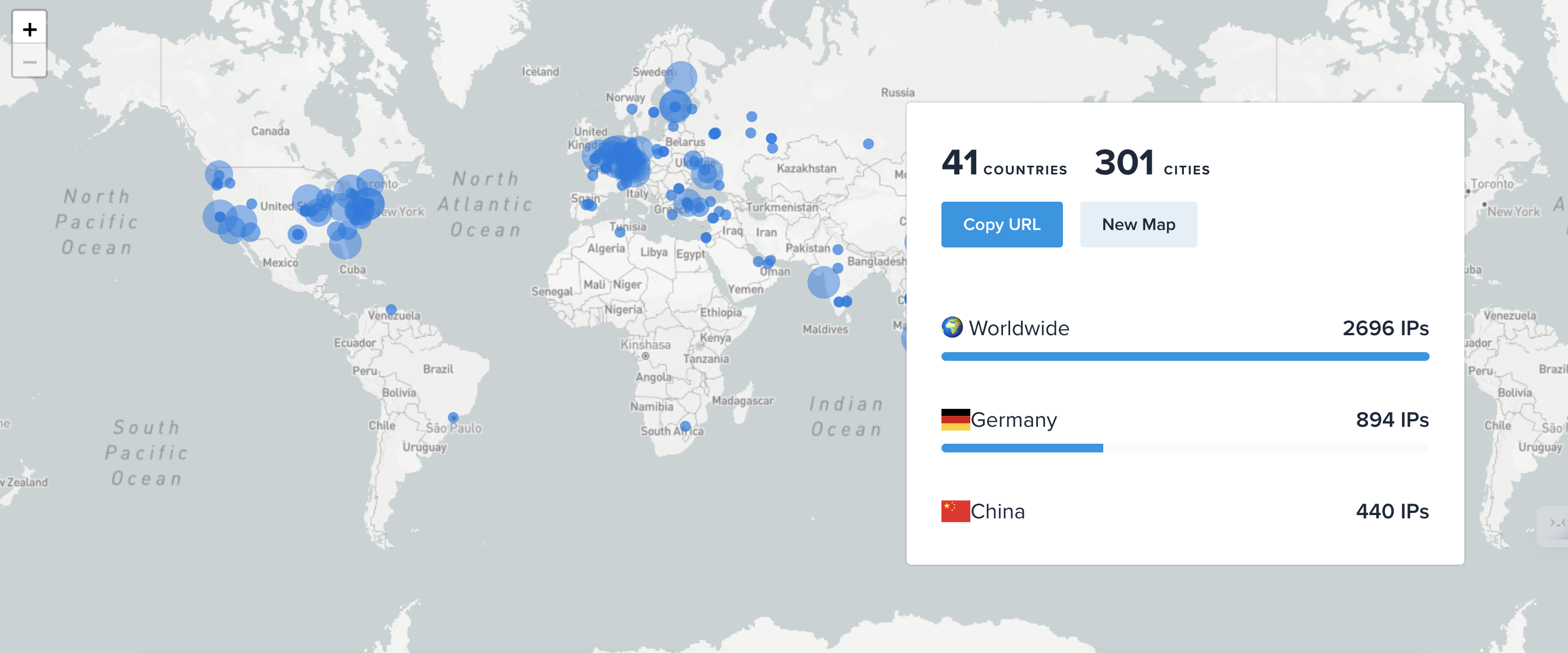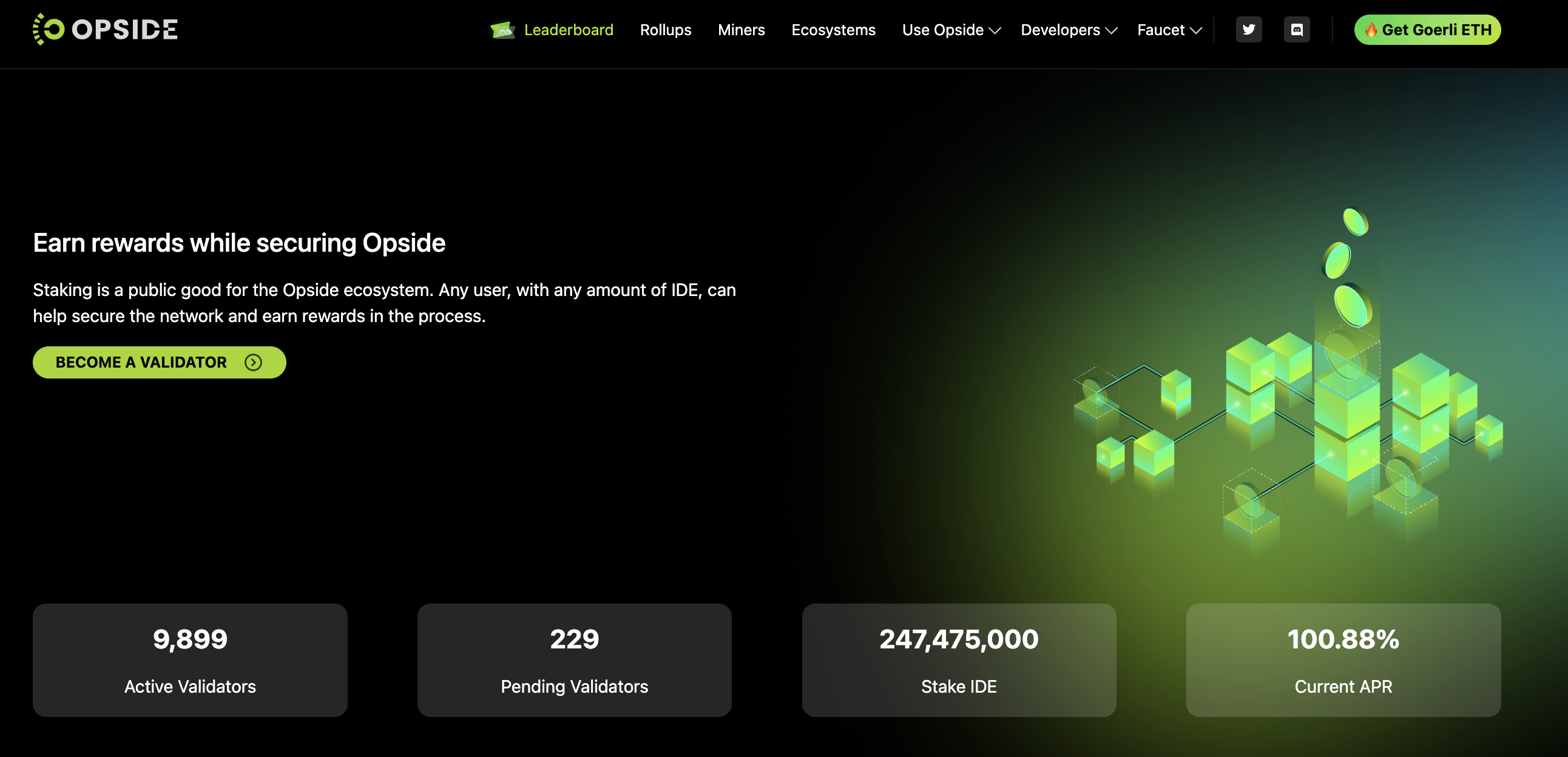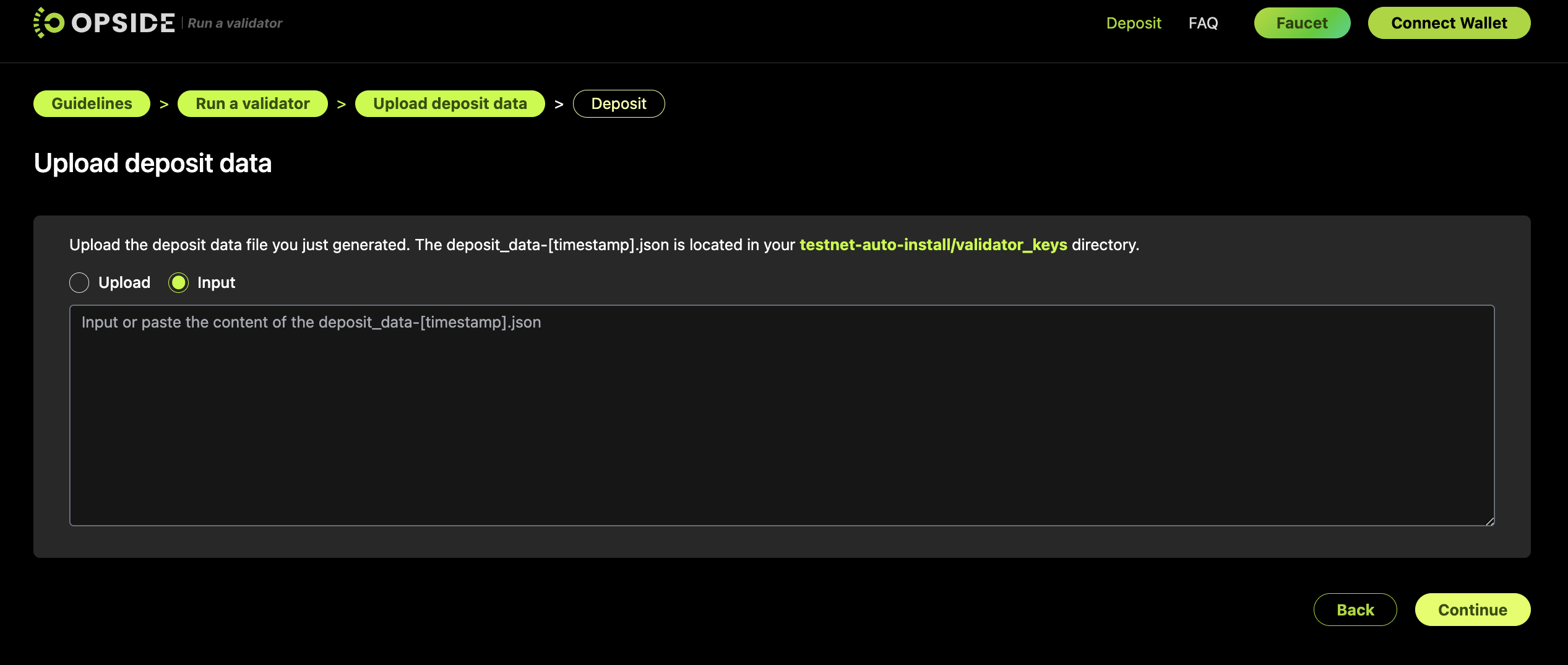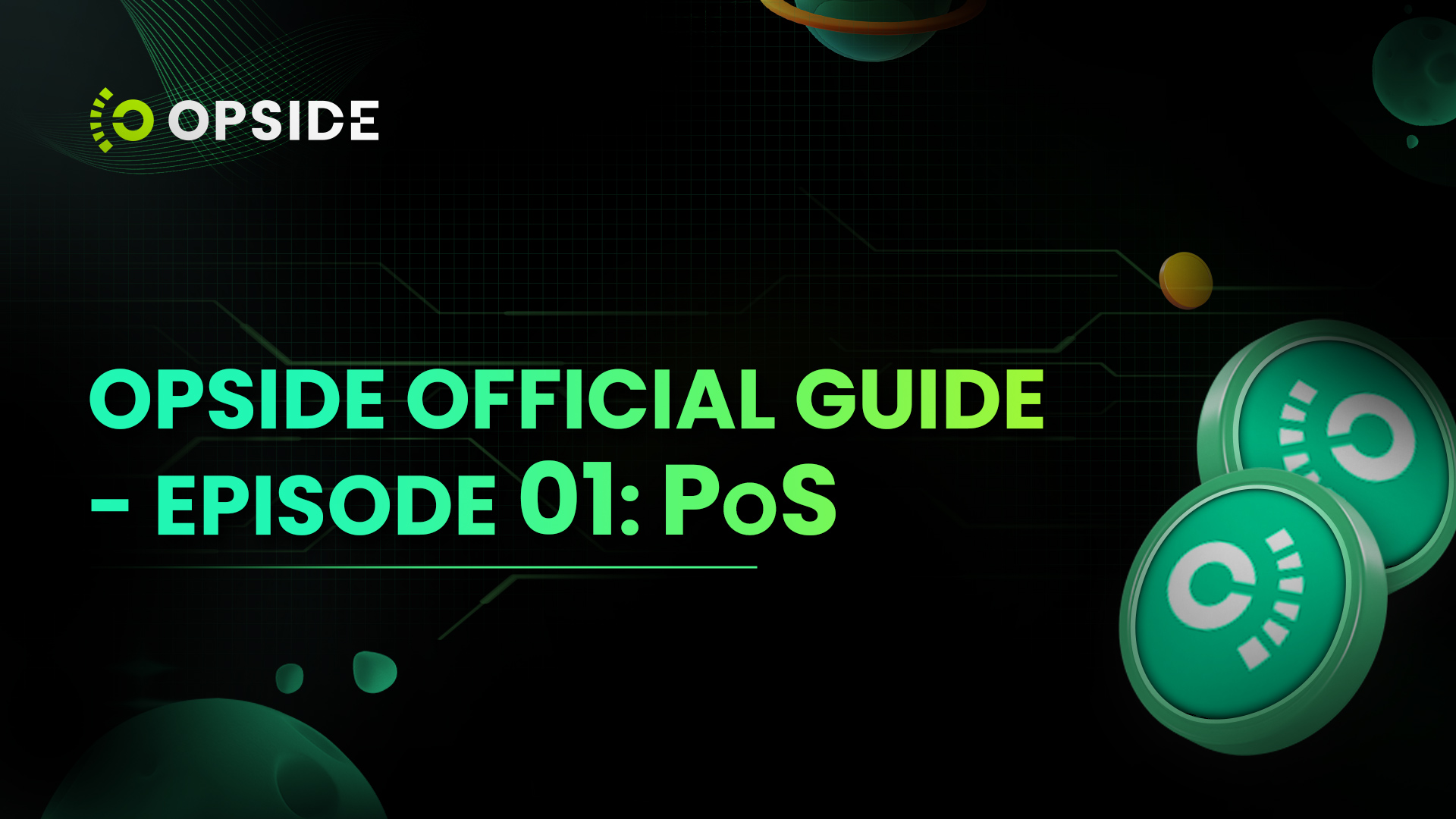Hong Kong, Jun 29, 2023, ZEXPRWIRE, The Opside community has always placed a heavy emphasis on Proof of Stake (PoS) nodes. Since the inception of the Opside Pre-alpha Testnet on May 24, there has been a significant uptick in the number of official Opside validators. Currently, there are more than 10,000 validators, operating stably and providing a robust infrastructure for the Opside network. Taking into account the operational cost per node—over $1,500 per annum as priced by Amazon, Google Cloud, and similar service providers— the community’s total investment in the Opside network has neared an impressive $15 million.
About half a month ago, the official cold-start validators voluntarily withdrew, marking a significant milestone for Opside. The network, now fully decentralized, is upheld by community-operated nodes. These nodes, amounting to over 10,000, span across 41 countries and are situated in 301 cities, highlighting the truly global and decentralized nature of the Opside network.

Over the past month, the official team at Opside has rolled out several key updates and modifications to the PoS nodes. These updates encompass:
- Iterative software updates from V1 to V3, enhancing the user interface and overall experience.
- The initiation of a batch pledge function on the official website, enabling streamlined operations.
- The capability for a single node to generate and manage multiple Validator functions.
- Incremental updates to the Consensus beacon browser.

Opside Pre-alpha testnet has maintained a stable run for more than a month now. To foster greater community involvement in PoS and to ensure the continued security and stability of Opside, the team has compiled a list of frequently asked questions (FAQs) pertaining to PoS node construction and operation based on the past month’s experiences. These FAQs have been categorized into basic and advanced sections for convenience.
Basic Level Q&A:
1. A Brief Overview of Opside PoS Validator?
Opside Chain employs the PoS consensus, which is an enhanced version of the one used by ETH 2.0. Validators are crucial for maintaining network-wide security and stability. To qualify as a Validator, users must deposit a designated amount of IDE into the deposit contract and operate three independent software tools: the execution client, consensus client, and validator. Validators bear the responsibility of validating new blocks propagated across the network, and intermittently, they create and propagate new blocks themselves. If any Validator engages in dishonest behavior, the pledged IDE will be penalized and destroyed. This PoS approach encourages individual participation in network protection and promotes decentralization.
2. What Are the Advantages of Participating in Opside PoS and Becoming a Validator?
Validators contribute to the smooth operation and future development of the Opside network. As a reward, they receive block rewards in the form of IDE, which can be exchanged for points at a predetermined ratio. These points can then be swapped for Opside mainnet Tokens in the future.
3. How Do You Become a Validator?
Here are a few simple steps to becoming a Validator:
- Ensure you have a server that fulfills the following specifications:
OS: 64-bit Linux, Mac OS X 10.14+, Windows 10+ 64-bit
CPU: 4+ cores @ 2.8+ GHz
Memory: 16GB+ RAM
Storage: SSD with at least 500GB free space (2TB recommended for mainnet)
Note: The above configuration is recommended by the official team, and users can run PoS nodes with machines of lower performance. However, machines with too low performance may lead to disconnection or slow synchronization, which could ultimately result in slashing from the network.
- Maintain a stable network connection.
- Run the execution client, consensus client, and Validator as three independent software programs on the server.
- Stake 25,000 IDE via the Opside front-end interface and wait for 16-24 hours for data synchronization.
- Check the operational status of the node at https://opside.network/validator/overview.
Congratulations, you’re now officially an Opside-certified validator!
Text Guide: https://docs.opside.network/validators-pos/run-a-validator
Video Tutorial: https://www.youtube.com/watch?v=S2tULBPMj0A
4. How Can You Acquire Testnet IDE?
Generally, there are three ways to get testnet IDE:
- Apply to become an official validator. The application standards have been progressively relaxed, and the PoS whitelist is updated weekly. APPLY NOW: https://forms.gle/cCVB3iAsXEVBW8sm6
- Use other tokens like GETH to swap in the IDE liquidity pool of the existing decentralized exchange. More DEXs will be introduced in the future, providing users with more choices for swaps.
- Sideswap: https://sideswap.finance/
BlockNG: https://opside.zkevm.testnet.blockng.money/
In addition, the Opside team has also launched the GETH faucet. You can check it out here: https://opside.network/goerli - Users who are already running nodes can receive IDE block rewards daily and use these for additional pledges to run new nodes.
5. Will running PoS nodes or staking with a new address, instead of a whitelisted address, affect future airdrop rewards?
There will be no impact whatsoever. The whitelisted address is for community users to receive testnet IDE on the Opside Discord.
Advanced Level Q&A:
1. How Can You Run Multiple Validators on a Single Node?
Opside has updated the V3 version with instructions for running multiple Validators on a single node. Old users can upgrade from the V2 version.
Guide:https://docs.opside.network/validators-pos/validators-management/create-more-validators-with-existing-mnemonic
2. How Can You Stake in Batches?
After generating multiple pubkeys using the software, you can input multiple validator pubkeys on the Opside official website’s PoS launchpad. You can then perform batch pledges in the subsequent steps, making it more efficient than the previous method of pledging one node at a time.

3. How Can You Claim More IDE for Staking?
Validators who are already running PoS nodes smoothly are encouraged to send an email to [email protected], detailing their current node operation status and their capacity to run nodes, to apply for more IDE for staking, and to operate more nodes.
More references:
- For additional queries, you can refer to our comprehensive PoS FAQ: https://docs.opside.network/validators-pos/validator-faq
- Community members have compiled PoS tutorials in various languages for your reference,please go to Opside’s Discord!
Please note : The above are just community-provided PoS tutorials and do not represent any official opinions. Please exercise caution regarding steps that involve purchases.
: The above are just community-provided PoS tutorials and do not represent any official opinions. Please exercise caution regarding steps that involve purchases.
The Post Opside Official Guide – Episode 01: PoS first appeared on ZEX PR Wire
Information contained on this page is provided by an independent third-party content provider. Binary News Network and this Site make no warranties or representations in connection therewith. If you are affiliated with this page and would like it removed please contact [email protected]




